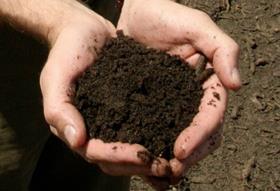
The NFU has stood out against more stringent regulations on soil protection in the UK, saying it would only lead to more imports from countries with lower environmental standards.
Speaking at yesterday’s Nuffield Conference in Nottingham, vice president Guy Smith said that while the NFU will be “the first” to encourage farmers to minimise their environmental impact, he was “wary of is imposing too much regulation” on them.
“The impact of that is simply to import more product from parts of the world where they don’t have such stringent levels of environmental regulation,” he said, naming Brazil as an example. “That makes no sense to me… I do not want to put a throttle round [British farmers’] necks.”
Soil protection will be one of the issues up for debate when Britain leaves the Common Agricultural Policy and develops its own environment regulations.
As an EU member state the UK is currently committed to the global '4 per 1,000' soil carbon initiative, aiming to increase soil organic carbonby 0.4 per cent each year. It also aims for all English soils to be managed sustainably and degradation threats tackled successfully by 2030.
However, the Soil Association complains that “recent statements from UK ministers on soil health are welcome, but have not been matched by action.”
Smith was responding to a question from Nuffield scholar and organic dairy farmer William Armitage, who accused British arable farmers of “killing their soils” and depleting their mineral content.
“When you look at the quality of food since the 1940s, it’s dropped by 40 per cent in terms of mineral density,” he said. “I’m afraid an awful lot of arable farmers have killed their soils, there’s no soil biology and without soil biology we cannot have mineral transfer from the soil to the crop.”
Armitage said this was having a knock-on effect on human and animal health, but Guy Smith, in combative mood, responded: “If apples only have half the nutrient density they used to have, eat two.” This would be a good way to sell more apples, he said, drawing laughter from the audience.
Smith added that most arable farmers are aware of conservation techniques such as minimum tillage and strip-till, which conserve organic matter, protect soils and make them better for drainage.



